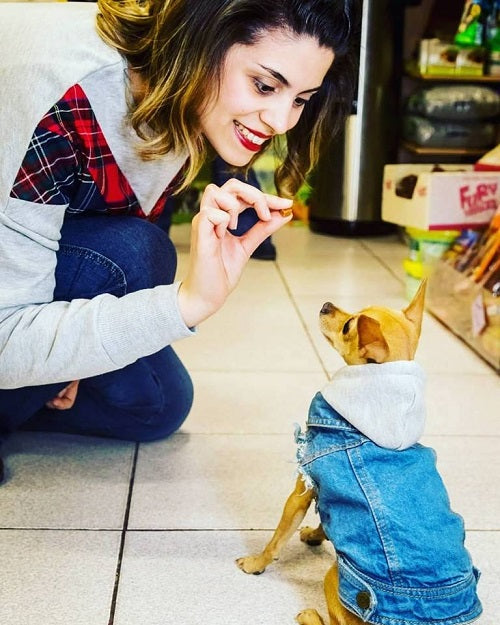
New kitten in the house? How to bring it into contact with the rest of your animals
Share
A new animal at home is a great joy for its people and for itself of course. But, it can be an unpleasant experience for the pets you already have.
Of course, you can avoid this by reducing confrontations if you know how to handle the situation in the first critical days . Read the following article for the most useful tips so that all your pets get along well with each other and calmly welcome the new family member.

Before the kitten comes
Find a quiet room in the house with a door that closes. This room will be the place where the kitten will stay for a few days. Everything he will need, such as food , water, a sandbox , toys and a playpen , should be there.
On the first day
The kitten should be brought into the house in a transport box, so that it is safe. Take it straight to the room, close the door and open the box. The kitten will probably immediately run and hide somewhere. It does not matter! Leave it alone in the room to get comfortable and adjust slowly by exploring the space.
Since your other pets will probably already be stressed out about the new arrival—since they'll smell it—leave the room, call them to you, and give them lots of love.

In the next few days
Keep the kitten in the separate room, providing it with everything it needs. If he starts to come out of hiding, engage him by petting him, playing with him and talking to him. This way, you gradually make him gain confidence and bond with you.
Don't forget to give the same love and attention to your other animals.
Once your kitten shows curiosity about the rest of the house, it's time to let him out of the room, but only for a while. Put your other animals in a different room until the newcomer explores the house. Don't be surprised if the kitten just takes a quick look and immediately goes back to its room. Every day he will explore a little more, until he finally feels confident .
At the end of the first week
After a week it's time for all your pets to get to know each other! It makes sense for larger animals to have defensive behavior, such as aggressive meowing or growling. It's nothing to worry about. They just want to show the little one who's boss!
In any case, however, you should be by your side to immediately prevent possible fights. In general, you should constantly supervise your pets until you are absolutely sure that they are playing calmly and harmoniously with the new member.
Once this happens, you can remove the separate room, leave them all together and slowly feed them in the same area.
DON'T FORGET: reward them with specific treats - which will be ONLY for this use - every time they quietly sniff the new member and show no aggression!




